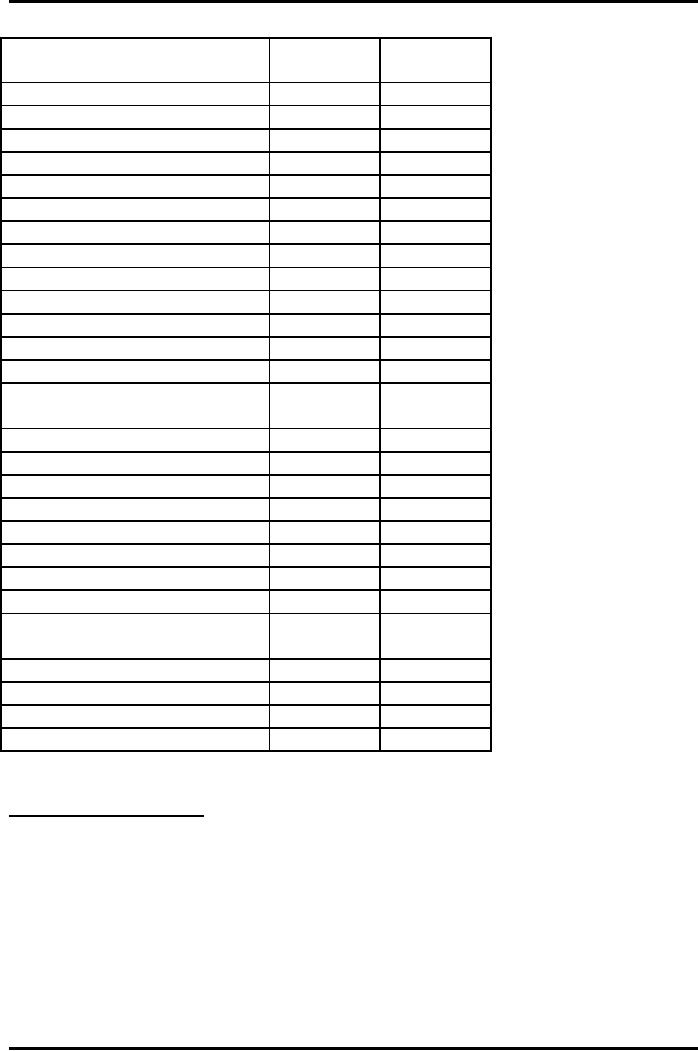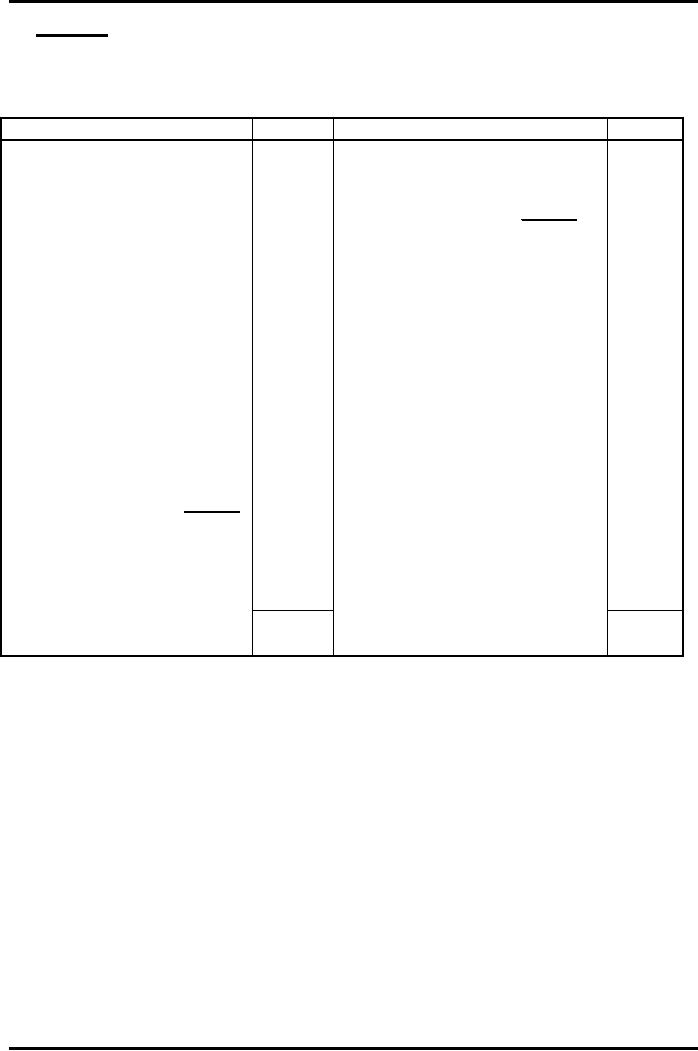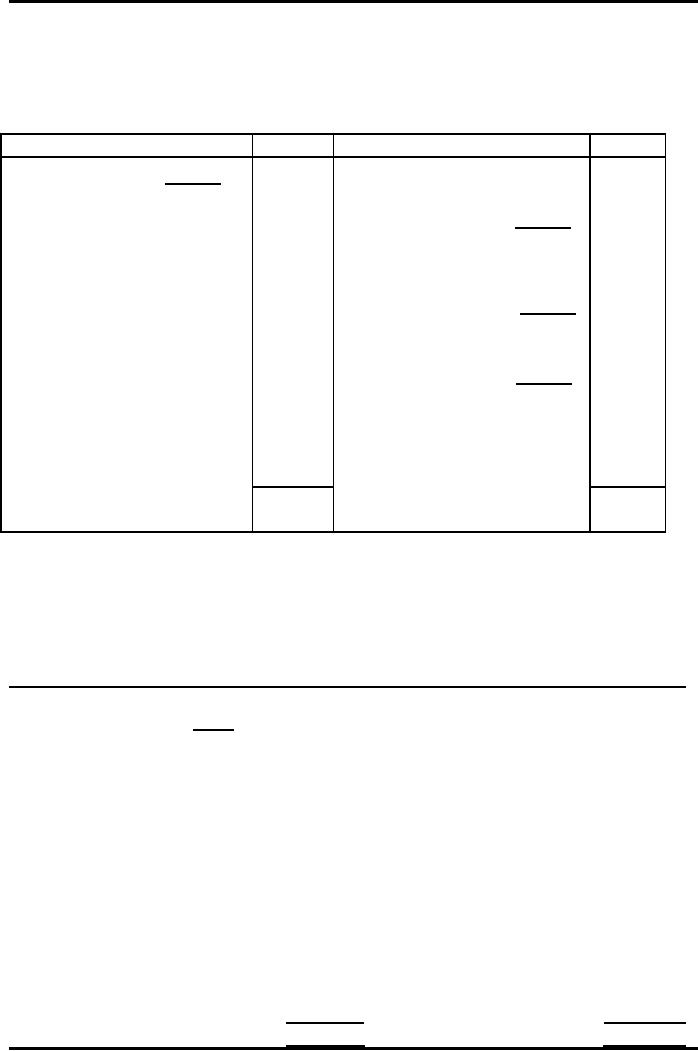 |
ACCOUNTING SYSTEM IN NON-PROFIT ORGANIZATIONS |
| << SINGLE ENTRY CALCULATION OF MARKUP AND MARGIN |
| NON-PROFIT ORGANIZATIONS >> |

Advance
Financial Accounting
(FIN-611)
VU
LESSON
# 6
ACCOUNTING
SYSTEM IN NON-PROFIT ORGANIZATIONS
Non
profit organizations like
business entities are also
large, medium and small in
size.
A large organization will be having a
complete accounting system
along with a
full
fledge accounts department
where the double entry
accounting will be followed.
Whereas,
medium or small sized non profit
organization will be maintaining
few
books
of accounts and will not be having proper
accounting system.
Small
size non-profit
organization
We
can observe so many examples of a
small size non-profit
organizations around
us,
the
very commonly understood example will be of a
street library where cash
book
would
have been maintained as the
only book of account and finally a summary
of
that
cash book is prepared at the
end of the year just to
have an overview of the
total
receipts
and payment made during the
year.
Because
of the very simple and few transactions,
its members do not need to know
its
financial
position at the end of each
accounting period therefore
Income &
Expenditure
Account and Balance Sheet is not
prepared.
Large
size non-profit
organization
On
the contrary, member of the
large size organization will be
interested in all
financial
results of the entity and a
proper book-keeping system is
developed over
there.
The outcome of which is production of a
Trial Balance which is used to
prepare
Income
& Expenditure Account and Balance
Sheet.
Medium
size non-profit
organization
Medium
size non-profit organizations
although do not prepare proper
books of
accounts
but need to know the financial
status in terms of surplus
income and
financial
position of the organization.
Fro this purpose; rules of
conversion of single
entry into
the double entry are
followed and finally Income &
Expenditure Account
and
Balance Sheet is
prepared.
Practice
Question
(This
is not difficult at your
level to understand what
appears in debit and
credit
sides
of a trial balance and which
information is put in the
income & expenditure
and
with information relates to
the balance sheet. For
practicing purposes a
solved
problem
is shown hereunder)
From
the following Trial Balance of a
club prepare an Income &
Expenditure Account
for
the year ended on 31st March 2008 and Balance Sheet as on
that date:
26

Advance
Financial Accounting
(FIN-611)
VU
Particulars
Dr.
Cr.
Rupees
Rupees
General
fund
30,000
Cash
in hand
2,000
Cash
at bank
3,000
Sundry
debtors
2,400
Sundry
creditors
1,500
Loan
@ 15% (1-07-2007)
20,000
Furniture
& Fixture
10,000
Building
40,000
Stock
of clod drink
500
Rent
6,000
Rate,
Taxes & Insurance
600
Secretary
Honorarium
1,200
Entrance
fee
1,000
Subscription
received in
1,500
advance
Salaries
& Wages
5,800
Extension
of building
10,000
Printing
& Stationary
1,000
Legal
charges
500
Annual
subscription
30,000
Card
& Billiard room receipts
4,000
Sundry
expenses
1,600
Cold
drink sales
5,000
Repair
of building and
400
furniture
Utility
expenses
1,000
Purchase
of clod drink
4,000
Interest
on Loan
1,000
Total
92,000
92,000
Additional
Information
1.
Subscription for the year
end outstanding Rs.
2,000
2.
Write off depreciation @10%
per annum on furniture and 2% on
building
including
the extension.
3.
Stock of clod drinks Rs.
1,000
27

Advance
Financial Accounting
(FIN-611)
VU
Solution
------
Club
Income
and Expenditure Account
For
the year ended
31.03.2008
Expenditure
Rs.
Income
Rs.
By
Subscriptions
30,000
To
Consumption of
cold
3,500
Add:
Outstanding
2,000
32,000
drink
6,000
To
Rent
600
4,000
By
Card &
Billiard
Room
To
Rates, taxes &
insurance
1,200
Receipts
5,000
To
Secretary's honorarium
1,000
By
Cold Drinks
To
Entrance fees
5,800
To
Salaries & wages
1,000
To
Printing and Stationary
500
To
Legal charges
1,600
To Sundry
expenses
To
Repairs to building and
400
furniture
1,000
To Utility
Bills
To
interest on loan
1,000
Outstanding
Add:
2,250
1,250
2,000
To
Depreciation
14,150
To
Excess of income over
Expenditure
Surplus
41,000
41,000
28

Advance
Financial Accounting
(FIN-611)
VU
-----
Club
Balance
Sheet
As at
31.03.2008
Liabilities
Rs.
Assets
Rs.
Capital
Fund
30,000
Club
House
40,000
Add:
Surplus
14,150
44,150
Add:
Extension
10,000
Sundry
Creditors
1,500
50,000
15%
Loan
20,000
Less:
Depreciation
1,000
49,000
Interest
on
Loan
1,250
(Outstanding)
Furniture
&
Fixture
10,000
Subscriptions
received in
1,500
9,000
Less
: Depreciation 1,000
advance
Stock
in hand:
Cigars
400
1,000
Wine
600
2,400
Sundry
Debtors
2,000
Subscription
due
3,000
Cash
at Bank
2,000
Cash
in hand
68,400
68,400
Q2.
Given
below is the receipts and
payments account of Hameed
Amusement Club:
Receipts
and Payments
Account
For
the year ended 31st
December, 2007
Receipts
Rs.
Payments
Rs.
Balance
Cash
260
Salary
of secretary
2,600
Bank
3,000
3,260
Subscription
8,000
Honorarium
350
(including
subscription for 2005
Rs.
150)
Sale
of old furniture on Jan 1,
750
Wages
3,400
2006
Sale
of old newspapers
80
Charities
1,500
Legacies
3,500
Printing
and stationery
400
Interest
on investments
1,200
Postage
100
(cost
of investment Rs.
20,000)
Endowment
fund receipts
10,000
Rent
and taxes
1,400
Proceeds
of concerts
800
Upkeep
of land
500
Advertisement
in year book
40
Sports
material
2,500
Balance
14,850
27,900
27,900
29

Advance
Financial Accounting
(FIN-611)
VU
Current
assets and liabilities as on 31st
December, 2006 and 31st December, 2007
are as
follows:
31.12.2006
31.12.2007
Rs.
Rs.
Subscription
in arrears
250
475
Subscription
in advance
310
620
Furniture
2,000
1,080
Depreciation
was 15% p.a. on the
furniture left after selling a
part of it. It was
decided
that
half of the legacies may be
capitalized.
Required:
Prepare
income and expenditure
account for the year
ending 31st December, 2007
and
balance sheet as on that
date.
You
are also required to show
calculations for the loss on
sale of furniture.
30
Table of Contents:
- ACCOUNTING FOR INCOMPLETE RECORDS
- PRACTICING ACCOUNTING FOR INCOMPLETE RECORDS
- CONVERSION OF SINGLE ENTRY IN DOUBLE ENTRY ACCOUNTING SYSTEM
- SINGLE ENTRY CALCULATION OF MISSING INFORMATION
- SINGLE ENTRY CALCULATION OF MARKUP AND MARGIN
- ACCOUNTING SYSTEM IN NON-PROFIT ORGANIZATIONS
- NON-PROFIT ORGANIZATIONS
- PREPARATION OF FINANCIAL STATEMENTS OF NON-PROFIT ORGANIZATIONS FROM INCOMPLETE RECORDS
- DEPARTMENTAL ACCOUNTS 1
- DEPARTMENTAL ACCOUNTS 2
- BRANCH ACCOUNTING SYSTEMS
- BRANCH ACCOUNTING
- BRANCH ACCOUNTING - STOCK AND DEBTOR SYSTEM
- STOCK AND DEBTORS SYSTEM
- INDEPENDENT BRANCH
- BRANCH ACCOUNTING 1
- BRANCH ACCOUNTING 2
- ESSENTIALS OF PARTNERSHIP
- Partnership Accounts Changes in partnership firm
- COMPANY ACCOUNTS 1
- COMPANY ACCOUNTS 2
- Problems Solving
- COMPANY ACCOUNTS
- RETURNS ON FINANCIAL SOURCES
- IASB’S FRAMEWORK
- ELEMENTS OF FINANCIAL STATEMENTS
- EVENTS AFTER THE BALANCE SHEET DATE
- PROVISIONS, CONTINGENT LIABILITIES AND CONTINGENT ASSETS
- ACCOUNTING POLICIES, CHANGES IN ACCOUNTING ESTIMATES AND ERRORS 1
- ACCOUNTING POLICIES, CHANGES IN ACCOUNTING ESTIMATES AND ERRORS 2
- BORROWING COST
- EXCESS OF THE CARRYING AMOUNT OF THE QUALIFYING ASSET OVER RECOVERABLE AMOUNT
- EARNINGS PER SHARE
- Earnings per Share
- DILUTED EARNINGS PER SHARE
- GROUP ACCOUNTS
- Pre-acquisition Reserves
- GROUP ACCOUNTS: Minority Interest
- GROUP ACCOUNTS: Inter Company Trading (P to S)
- GROUP ACCOUNTS: Fair Value Adjustments
- GROUP ACCOUNTS: Pre-acquistion Profits, Dividends
- GROUP ACCOUNTS: Profit & Loss
- GROUP ACCOUNTS: Minority Interest, Inter Co.
- GROUP ACCOUNTS: Inter Co. Trading (when there is unrealized profit)
- Comprehensive Workings in Group Accounts Consolidated Balance Sheet